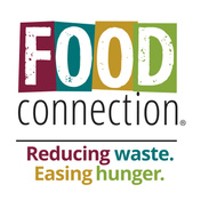Fight Looms Over Future of Charter Schools
Report says they're inadequate, supporters disagree
"Charter school supporters are advocating that the legislature increase the number of charter schools allowed from the current cap of 100, but the center's research indicates that such a move would be premature," said Mike McLaughlin, editor of the NCCPPR publication North Carolina Insight. "Too many of the schools are mediocre-to-poor academic performers, too many are in financial disarray, and too many are segregated by race. That's not what the legislature hoped for when it began the charter school experiment."
Charter schools are essentially public schools whose charters are awarded by the state and whose affairs are governed not by a superintendent or elected school board but by a board of volunteer citizens. The goal of charter school legislation passed in 1996 was to allow citizens to create schools separate from the education establishment to try to teach academically gifted and academically challenged students in ways the traditional public schools cannot. The hope was that charter schools, cut off from the bureaucratic leash, would be free to innovate and would compete with traditional public schools for students, making both stronger. But because of these rules, there is also little formal oversight of how they're run on a day-to-day basis.
The three math teachers who taught at Crossroads -- school administrators claim they were fired from the school -- say the way the schools are set up left them virtually no one to take their complaints to other than the media. They've asked politicians and the state and federal education departments to investigate their claims that about a third of the school's graduating class failed math -- and likely other subjects as well -- but were handed their high school diplomas anyway. The school's attorney denies the teachers' charges.
The teachers, the original author of the school's charter, and other employees of the school interviewed by CL over the past month, say the day-to-day reality at the school was very different from what was proposed to state education officials in the charter application. They claim administrators lost control of the kids early on, creating an atmosphere in which teachers were regularly threatened and could barely control their classrooms. They say many of the kids spent their time in a kind of in-house detention center where they watched movies all day rather than attending classes, and as a result missed critical classroom instruction. Again, the school's lawyer denies these charges.
The state Department of Public Instruction views a charter school as its own school district, says Vernon Robinson, president of the North Carolina Education Reform Foundation. The school's volunteer board is subject to open meetings and documents rules like any other school. The line of responsibility for the school goes to the appointed state Board of Education, which has ultimate responsibility over public education in North Carolina. Robinson says the state board usually defers to the decisions of an appointed charter school advisory committee that reviews matters of concern at the school and can recommend that a charter be dissolved.While the Department of Public Instruction doesn't get involved in the day-to-day running of the schools, the schools must turn in an audit each year and Dr. Otho Tucker, director of the Office of Charter Schools, receives a monthly principal's report including absentee reports from each of the schools.
"We watch for fluctuation in enrollment," said Tucker. "Then we check to see what is going on. We have the discretion to step in and assess the situation."
If Tucker found a problem or concern at a school, he could take it to the charter school advisory committee or the state Board of Education, he says. But beyond that, the charters are on their own.
Speaking of Metrobeat.html, 5.00000
-
A Family Affair
Dec 12, 2007 -

Darrell Roach
Dec 12, 2007 -
Body Talk
Dec 12, 2007 - More »
Latest in News
-
The Man, The Myth -- Renelvis
-
Good Eats
Our critics' guide to recommended restaurants in Charlotte
-
Good Eats
Our critics' guide to recommended restaurants in Charlotte







